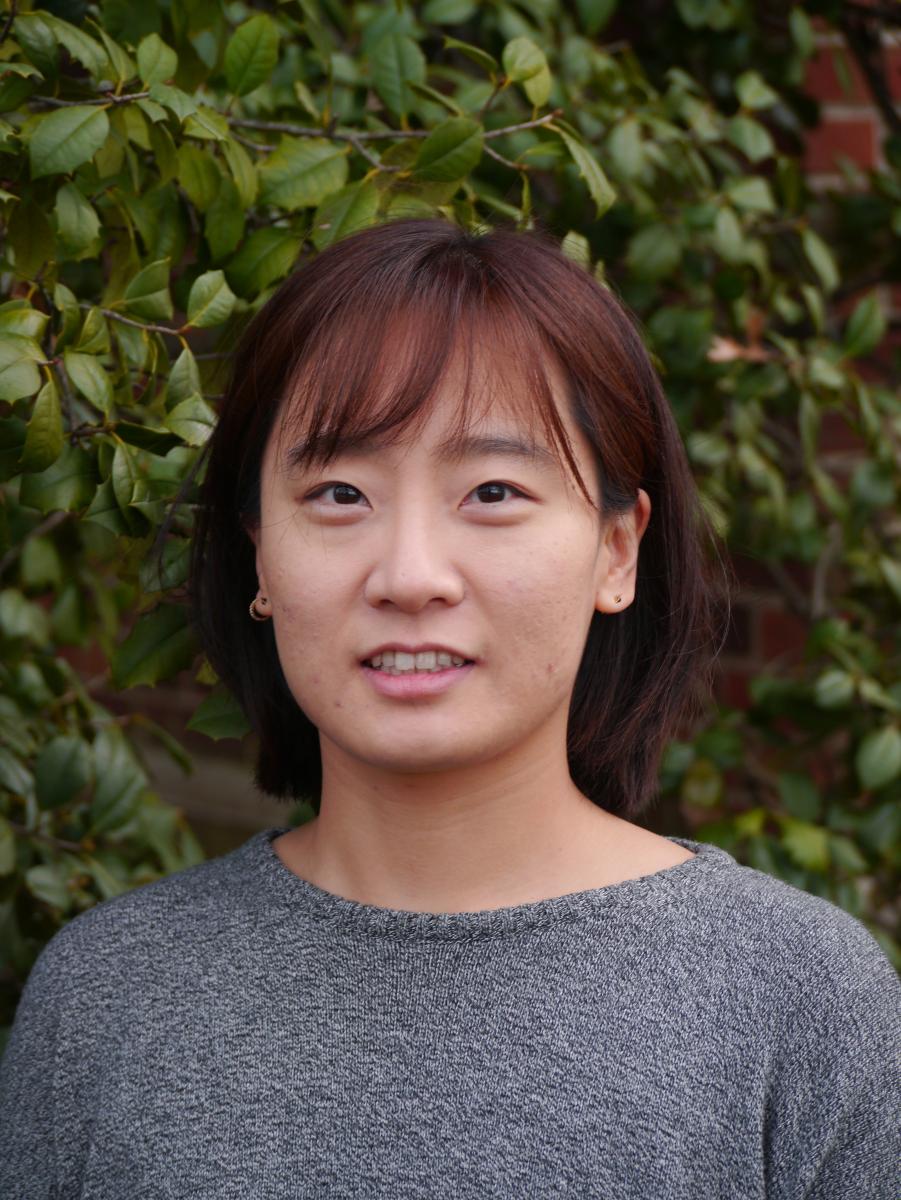 Joohee Choi remembers the moment in 1997 when she created her first email address through Hanmail, South Korea's first public webmail service. That event sparked a life-long interest in tinkering with web-based communication and information science - specifically, understanding the interaction between computers and humans.
Joohee Choi remembers the moment in 1997 when she created her first email address through Hanmail, South Korea's first public webmail service. That event sparked a life-long interest in tinkering with web-based communication and information science - specifically, understanding the interaction between computers and humans.
Joohee came to the University of Maryland from Yonsei University, where she received her Master's degree in Cognitive Science. Now in her second year in the iSchool's doctoral program, Joohee's research examines information behavior - what people do to fulfill their information needs. Using computational techniques, her research aims to analyze the large-scale data that captures ongoing social phenomena.
Joohee is already internationally recognized for her work. Less than a month ago, Joohee published her first full paper, as first author, and presented it at the 2017 Computer-Supported Cooperative Work and Social Computing (CSCW) conference. The paper was titled Characteristics of Collaboration in the Emerging Practice of Open Data Analysis. The 2017 International AAAI Conference on Web and Social Media (ICWSM) has also accepted a paper she co-authored entitled Which Size Matters? Effects of Crowd Size on Solution Quality in Big Data Q&A Communities.
We connected with Joohee during Graduate Student Appreciation Week - a time to recognize graduate student achievement on this campus.
Where do your best ideas come from?
Being an avid reader, my ideas originate from different sources: non-fiction books, essays, and documentaries I may watch. I draw inspiration as I write in my daily journal, where I sum up my research for the day. A casual chat or meal with my friends can spark an unexpected idea related to my work. For any scholar, I think it is important to keep an open mind and make connections where possible.
What is your idea of a perfect morning at UMD?
I enjoy walking. I often think my favorite night walk along the Han River in Seoul - there is something peaceful and serene about it, much like the UMD campus early in the morning. I look forward to my walk across campus to my office.
If you would sum up the most important characteristics of an information scientist in three words, what would they be?
There are all sorts of information scientists studying diverse research areas so I cannot pick just three. Information science is a moving target. Therefore, I would generally say that in this field a person thrives if he/she is a fast-learner, attentive to details, and open-minded. In addition, one thing that I particularly appreciate about my program is that it is both practically meaningful and academically grounded. Those are also traits, I think, are helpful to a scholar.
Who, or what, inspired you to enter your field?
I chose my undergraduate major after reading The Third Wave by Alvin Toffler. Beyond that, I was attracted to cognitive science because there is evidence that the human mind works similar to that of a computer. I was also fortunate that I had amazing advisors during my Master's program - they inspired me to focus my research interests and from there, to pursue an academic career.
Has there ever been a time in your life and/or work when you have doubted what you were doing to the point that you seriously considered abandoning said work?
Countless number of times. As an undergraduate, I never imagined that I would be pursuing doctoral studies. Even when doing research, you never know how it will go. I have found that failure is often a vehicle for an educational or scholarly moment.
Who in your field, would you most want to meet and why?
The field of information science itself is very broad, so I will limit my answer to the area of information behavior. Since the disciplinary focus is relatively new, most of the expert researchers are alive, actively working and attending conferences. As a result, I had a chance to meet quite a few of them. Outside academe, I would like to meet Stack Overflow founders, Jeff Atwood and Joel Spolsky, because I am analyzing the site's public data and interviewing them would be very useful.
What would you be if you weren't an information scientist?
Either a social activist or a start-up founder. Though, the two are not mutually exclusive. This is based on my personal belief that anyone can make a social impact if they choose to intervene in a particular social issue. I am interested in improving civic participation through information technology. Governments or any entity can, for example, increase transparency through greater information sharing - ideally in a machine-readable format for public analysis.
How does creativity play a role in your science?
It plays an immense role in doing research. In this interdisciplinary field, it is rather a must since you have to combine analytic methods or academic theories from at least two different areas.
What is the hardest problem you solved as a grad student at UMD?
Settling in as an international student was a challenge. Going somewhere new, finding yourself and creating a community definitely tested me. Fortunately, I had a lot of help. Research-wise, I am facing new challenges almost daily so I would be hard-pressed to find anything specific!
If you were a kind of data, what kind would you be and why?
A collection of random data points put into a non-linear function with a hope that its return is getting asymptotically closer to the ideal self.
Further information about Joohee Choi and her work can be found here.
